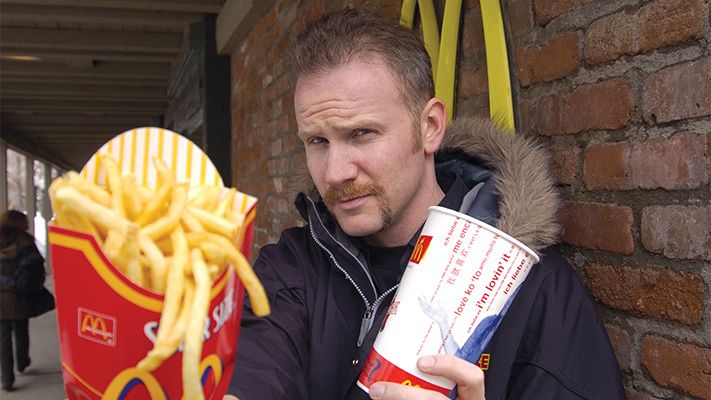
Unlike the countless men whose careers were killed in the fury of the #MeToo movement, Morgan Spurlock didn’t just deny he had committed serial sex abuse and misconduct, he embraced the reality that he was “a part of the problem,” canceling himself in a shocking 2017 blog post in which he confessed to harassing subordinates and described raping at least one woman.
When Spurlock died of cancer at the end of May at just 53 years old, much of the media led its obituaries with retrospectives of his recent career collapse. But Spurlock’s sexual misconduct was arguably far less damaging to the film industry than his professional malfeasance. Just as Harvey Weinstein helped entrench on-air sexploitation and off-camera quid-pro-blow-jobs in Hollywood, Spurlock spearheaded decades of dishonest documentaries promulgating piddling science in furtherance of left-wing propaganda.

Spurlock’s Super Size Me was a critical darling and box office blockbuster, generating a more than 33,000% return on his investment. The 2004 documentary detailed Spurlock’s 30-day diet of exclusively consuming McDonald’s with the stipulation that he had to eat three meals a day, consume everything on the menu at least once, “Super Size” his meal if asked by a cashier, and eat everything he ordered even if he was full. In the wake of NAFTA, the collapse of the Berlin Wall, and capitalism’s extraordinary and visible success across an increasingly globalizing and liberalizing world, Spurlock’s modus operandi was obvious: to punish a powerhouse of American enterprise and blame big business, not personal choices or even government policy, for our explosive obesity rate.
The fatal flaw of Spurlock’s magnum opus is not just that his single anecdote did not constitute representative data, but also that the single anecdote on air didn’t even reflect Spurlock’s own reality.
By design, Spurlock’s conclusion that the all-McDonald’s diet caused a 25-pound weight gain, fatty liver, and erectile dysfunction was unfalsifiable. He never disclosed the fact exactly what he ate for each meal during his trial, nor did he reveal that he had been a vegan before launching into an all-meat diet for a full month. Most egregiously, he did not reveal, either to the audience or the doctors who issued him a clean bill of health on camera at the start of the film, that he was a lifelong alcoholic who, per his own admission during his #MeToo confession, had not “been sober for more than a week in 30 years.”
But of course, an alcoholic becoming ill after exchanging kale and quinoa for triple servings of force-fed cheeseburgers isn’t a riveting story; it’s barely even a statistic.
CLICK HERE TO READ MORE FROM THE WASHINGTON EXAMINER
None of this stopped Super Size Me from earning plaudits from the pulpit and allowing Spurlock to use his bully pulpit to single-handedly shame the “Super Size” menu at McDonald’s out of existence. The documentary’s commercial success invited a deluge of similarly progressive performances parading as science. After Super Size Me spread pseudoscience in middle school health classes, Food, Inc. brainwashed a generation into fearing genetically modified organisms and Blackfish nearly bankrupted SeaWorld. So what if we now know that poisonous levels of sugar consumption, not the meat and fats in cheeseburgers, cause the bulk of our obesity crisis, or that climate change didn’t actually kill all the snow on Kilimanjaro in a decade, as Al Gore famously predicted in An Inconvenient Truth?
Like plenty of men before him, Spurlock may have made Hollywood a little meaner, but his real lasting legacy is the lie that heralded decades of bad science packaged into polished documentaries that made us collectively dumber.






